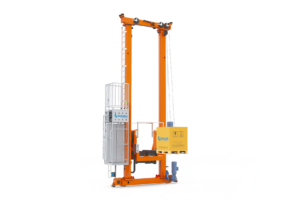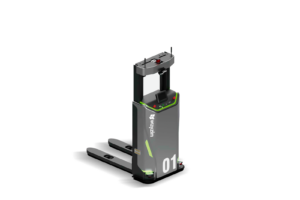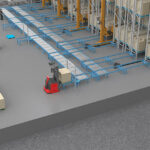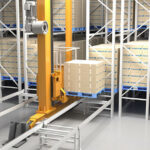Introduction to Warehouse Automation
In the dynamic world of logistics and supply chain management, the adoption of warehouse automation solutions is rapidly becoming a necessity rather than a luxury. The evolution of technology has paved the way for businesses to optimise their operations, reduce costs, and significantly improve efficiency and productivity. As we delve into the realm of warehouse automation, it’s essential to understand how these technologies are revolutionising the industry and what solutions are at the forefront of this transformation.
The Driving Forces Behind Warehouse Automation
Warehouse automation involves the use of technology to perform tasks that were traditionally done manually, ranging from inventory management to the actual movement of goods within a facility. The primary goal is to streamline operations, minimise human error, and enhance safety. Several factors contribute to the growing adoption of warehouse automation, including the increasing demand for faster order fulfillment, the rise in e-commerce, and the need for more efficient use of space within warehousing environments.
Key Warehouse Automation Technologies
Several technologies stand out in the warehouse automation solutions space, each serving different purposes but collectively contributing to a more efficient warehouse operation.
- Automated Storage and Retrieval Systems (ASRS): These systems significantly reduce the amount of manual labor required to store and retrieve items, leading to improved accuracy and speed in the order fulfillment process.
- Robotics and AGVs (Automated Guided Vehicles): Robotics technology, including drones and AGVs, has been a game-changer, allowing for the automatic movement of goods within warehouses, which boosts productivity and reduces operational costs.
- Warehouse Management Systems (WMS): A robust WMS is critical for the integration of automation technologies into the warehouse. It enables real-time inventory tracking, optimises picking and packing processes, and improves overall supply chain efficiency.


RELATED: Automated Warehouse Solutions: Streamlining Operations for Efficiency and Productivity
Benefits of Implementing Warehouse Automation
The implementation of warehouse automation solutions brings about a myriad of benefits. Firstly, it significantly reduces labor costs and dependencies, mitigating risks associated with labor shortages or high turnover rates. Additionally, automation leads to enhanced accuracy in inventory management, reducing the incidence of errors in order fulfillment. Perhaps most importantly, automation can dramatically increase the speed of warehouse operations, enabling businesses to meet the growing consumer expectations for rapid delivery times.
Challenges and Considerations
While the benefits are clear, businesses must also navigate certain challenges when implementing warehouse automation solutions. The initial investment can be substantial, requiring careful financial planning and analysis. Furthermore, integrating new technologies with existing systems and workflows can pose technical challenges. Businesses must also consider the impact on their workforce and explore strategies for reskilling or redeploying employees affected by automation.
Frequently Asked Questions (FAQs)
- What is warehouse automation?
Warehouse automation refers to the use of technology to perform tasks within a warehouse that were traditionally done manually, such as inventory management and the movement of goods. - How does warehouse automation improve efficiency?
Automation improves efficiency by streamlining operations, reducing manual labor, minimising errors, and speeding up the order fulfillment process. - What are the key technologies in warehouse automation?
Key technologies include Automated Storage and Retrieval Systems (ASRS), Robotics and Automated Guided Vehicles (AGVs), and Warehouse Management Systems (WMS). - What are the challenges of implementing warehouse automation?
Challenges include the initial financial investment, integrating new technologies with existing systems, and managing the impact on the workforce. - Can small to medium-sized businesses benefit from warehouse automation?
Yes, businesses of all sizes can benefit from warehouse automation. Solutions can be scalable and tailored to fit the specific needs and budgets of smaller operations.
Empowering Your Warehouse with Automation
As we look towards the future, it’s evident that warehouse automation solutions are not just a trend but a fundamental shift in how warehouses operate. By embracing these technologies, businesses can position themselves to meet the demands of an increasingly fast-paced and complex marketplace. While challenges exist, the potential benefits in terms of efficiency, productivity, and competitive advantage are too significant to ignore. As we continue to innovate and adopt new technologies, the landscape of warehousing and logistics will undoubtedly continue to evolve, promising an exciting future for the industry.
Join forces with SmartlogitecX, backed by the technological strength of WayZim Technologies, and lead the charge in Warehouse Automation in Australia and New Zealand. We are more than a service; we are your strategic partner in redefining logistics. Opt for SmartlogitecX to harness the full potential of advanced technology, crafted with an understanding of the local market. Connect with our sales team to begin your journey towards an automated, efficient future.



